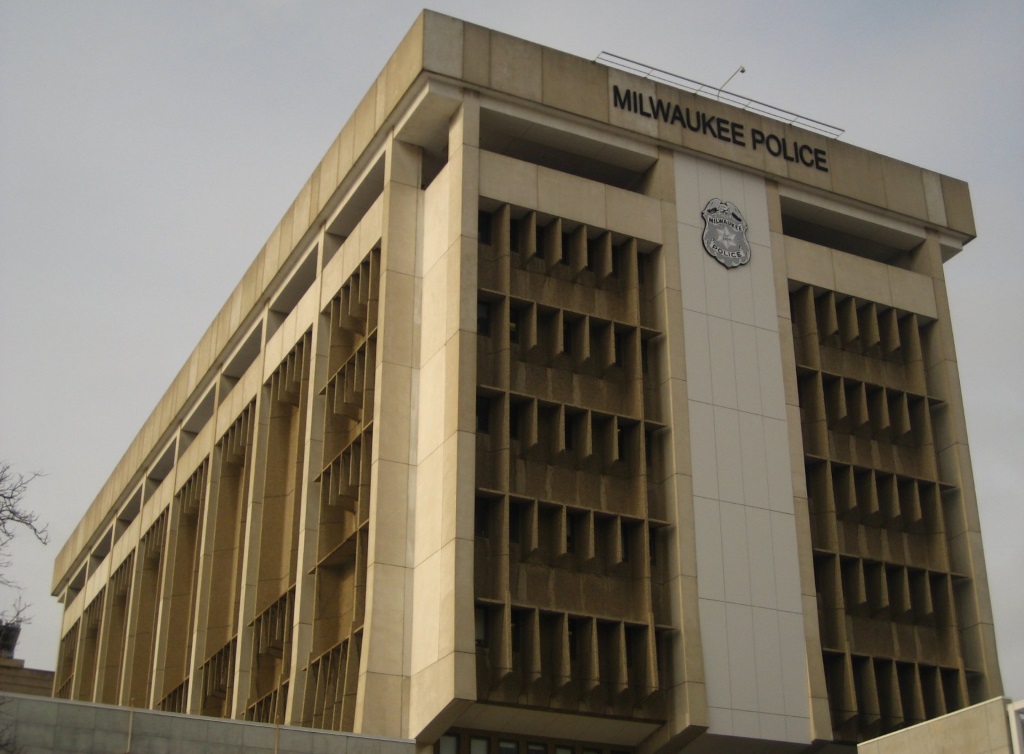City’s $3.4 Million Settlement Will Cost More?
IT costs weren't factored into city settlement of ACLU suit, could increase price tag.
The Milwaukee Common Council and Mayor Tom Barrett authorized a $3.4 million settlement Tuesday to end a class action lawsuit from the American Civil Liberties Union, but the cost of complying with the settlement may be underestimated.
The suit alleged that Milwaukee police, under the direction of former chief Edward A. Flynn, engaged in a policy of “stop and frisks of Black and Latino people that involve racial and ethnic profiling, or are otherwise motivated by race and ethnicity, rather than reasonable suspicion of criminal conduct” that violated the 14th amendment of the US Consitution. The city did not admit guilt as part of the settlement, but did agree to change police policies.
The city will borrow $1.9 million to pay the legal fees of the ACLU’s national legal team and a maximum of $1.5 million will be spent on a consultant, the Crime and Justice Institute, over the next five years to monitor the city’s compliance. What’s left out is the associated information technology costs the Milwaukee Police Department will incur to update and integrate its record-keeping systems and the time it will take rank-and-file officers to comply with the data entry requirements.
MPD Inspector Terrence Gordon doesn’t think the department will need more funds to comply with the IT costs, but also admitted at a July 9th Common Council committee meeting that the settlement team had yet to talk to the Milwaukee Police Department’s information technology director.
In response to a question by Alderwoman Milele A. Coggs asking if the department could estimate the costs associated with the IT changes, Gordon told the Finance and Personnel Committee: “Not yet, because all of that is dependent on the language in the agreement. It has gone through a succession of drafts. It is in a format right now where we would be safe in meeting with our IT director. We don’t expect to have to ask for additional money, because there are ways to fund things like asset forfeiture, JAG grants if that ever gets freed up after the immigration discussion and things like that.”
Coggs did not ask a follow-up question on the matter before going into closed session, but Ald. Robert Donovan raised the issue at Tuesday’s Common Council meeting as part of a lengthy list of reasons for voting against the settlement. Donovan and Ald. Mark Borkowski were the only no votes on the settlement.
The scope of work required isn’t small. Six pages of the 49-page settlement detail specific procedures and system changes the police department must adopt, including linking all the department’s databases together so that information about a traffic stop can be queried as a single record with a substantial amount of data about the person stopped. In addition, requirements are in place that body camera footage be tied directly to the linked database records.
The settlement spells out the need for new user interfaces to accommodate the linked records as well as the development of a system to reject incomplete records and email officers on any records they need to finish. According to statements from various Common Council members, sloppy record keeping was one of the central elements that led to the settlement.
Last summer, the council temporarily held up the allocation of $1.1 million in federal asset forfeiture funds to the police department as a way to express displeasure with then-Chief Flynn. The department is able to spend the funds without council oversight, as it apparently intends to do on the ACLU settlement.
Should the costs come in higher than expected, the police department will need to push the city to turn again to borrowing to stay in compliance with the settlement. Facing increased pension costs and a decline in state aid, the mayor and Common Council passed a budget that eliminated 27 police officers through attrition for 2018 and are likely to have make difficult choices again for 2019.
The Milwaukee Police Department did not respond to a request for more information by the time of publication.
If you think stories like this are important, become a member of Urban Milwaukee and help support real independent journalism. Plus you get some cool added benefits, all detailed here.
If you think stories like this are important, become a member of Urban Milwaukee and help support real, independent journalism. Plus you get some cool added benefits.
Political Contributions Tracker
Displaying political contributions between people mentioned in this story. Learn more.
- September 8, 2015 - Bob Donovan received $50 from Mark Borkowski
City Hall
-
Judge Rules MPS, City Must Split School Police Costs 50/50
 Feb 17th, 2025 by Graham Kilmer
Feb 17th, 2025 by Graham Kilmer
-
Police Department Closing Unlicensed Driver Loophole
 Feb 14th, 2025 by Jeramey Jannene
Feb 14th, 2025 by Jeramey Jannene
-
The Tire Bounty Is Back
 Feb 6th, 2025 by Jeramey Jannene
Feb 6th, 2025 by Jeramey Jannene























It would seem this article might well be linked to this one: https://urbanmilwaukee.com/2018/06/20/banks-make-millions-off-police-brutality-cases/
I hope that MPD and the Common Council will take a close look at the 2019 budget requests https://city.milwaukee.gov/ImageLibrary/User/crystali/PublicSite/2019_Budget_Requests.pdf (page 200) and consider staffing the following positions to facilitate compliance with the I.T. requirements of the settlement:
Information Services Manger
Systems Analyst-Sr
Applications Support Analyst
Database Administrator
IMO, this effort will also require a full-time project manager to insure that the fixed deadlines are met.
I asked the Fire and Police Commission yesterday to establish an ad-hoc committee consisting of FPC, MPD and Alders to watch over the implementation of the settlement.
One significant change between the initial “Collins – Settlement Agreement and Consent Decree” and the final “Collins – Settlement Agreement and Court Order” (Documents are at https://milwaukee.legistar.com/LegislationDetail.aspx?ID=3480960&GUID=F3A80523-FF4A-4EC5-BDED-F1A6216933D6) is the addition of this GET OUT OF JAIL FREE card in the discussion of Training on page 19 — in the later:
2. Within twelve (12) months of the execution of this Agreement, and on an annual basis thereafter, MPD shall provide training for all MPD staff who conduct, supervise, document in TraCS, RMS, or CAD, and/or audit traffic stops, field interviews, no-action encounters, frisks, and searches. If Defendants show good cause for the need for an additional six months to complete this training, Plaintiffs will not unreasonably withhold agreement to such an extension.
The last sentence is new in the Court Order and extends the deadline for the implementation of the settlement by 6 months — for good cause. If MPD’s I.T. department follows standard software deployment models, the changes being made will be “migrated” through at least three “environments”: Test, Stage and Production. The Agreement does not stipulate which environment or “phase” of development the software must be in to conduct the training, nor does it stipulate a date when at least some training of MPD staff must be completed. Thus, if MPD can show “good cause” for not being ready to train even a single MPD staff person in the Test environment within 12 months, they can play their GET OUT OF JAIL FREE card and extend the deadline by 6 months.
A careful reading of the “Collins – Settlement Agreement and Court Order” linked above reveals many deadlines for both MPD and the FPC to meet.
I want to see a Project Plan from both MPD and the FPC that includes implementation schedules for all the components, how the efforts will be staffed, and an estimate of the final costs and, specifically, how it will be budgeted for.
I want MPD and the FPC to succeed in implementing the goals of the settlement!